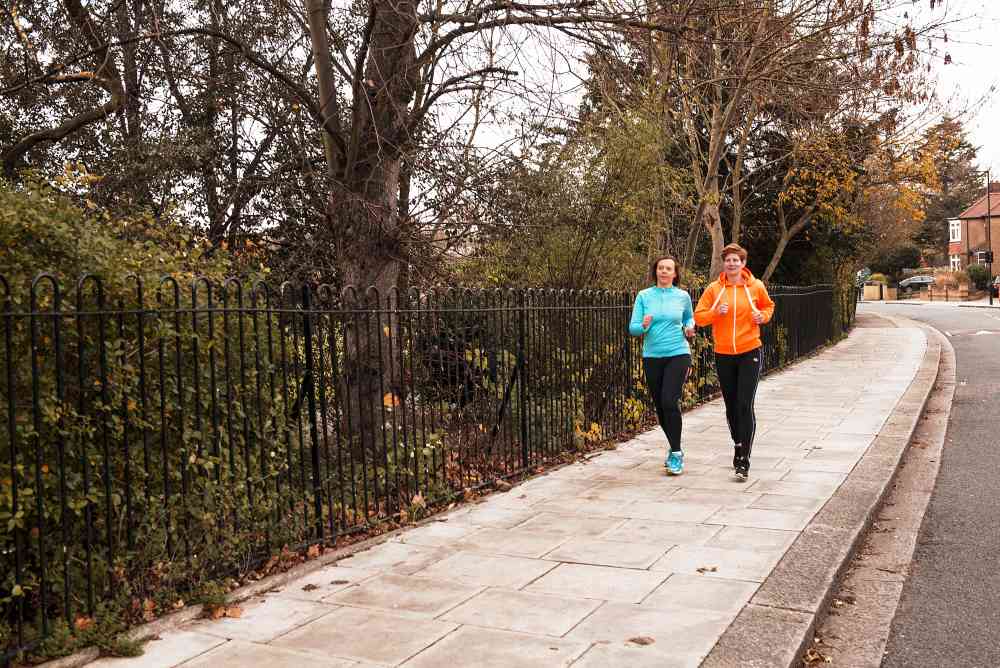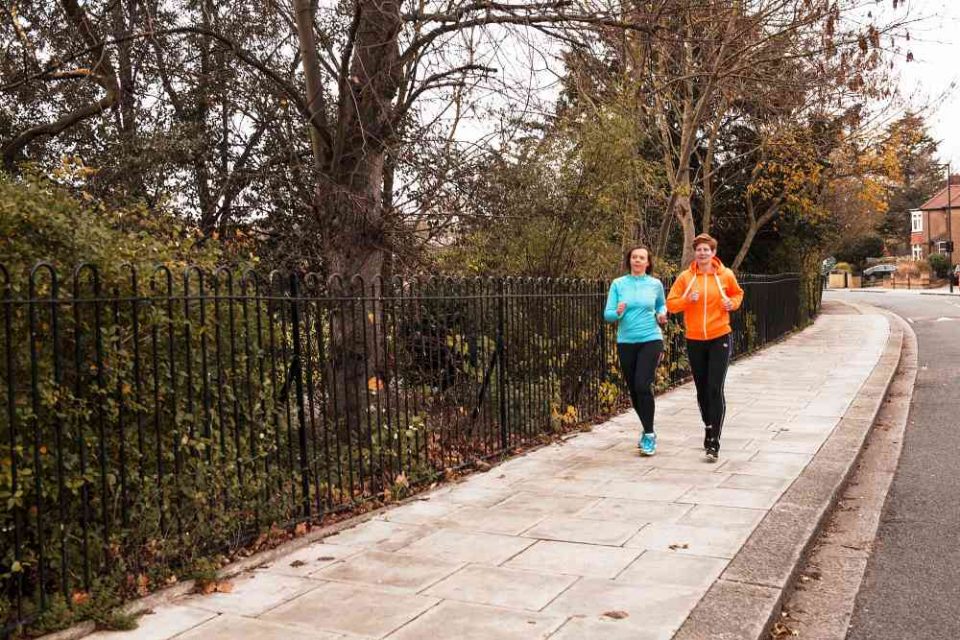
I’m 42 and I’ve never been more aware of my health and wellbeing than I have been since I hit 40. I don’t think 40 is old, nor was I bothered about hitting the big 4-0, but I am aware that a combination of factors means that looking after your health as you hit 40 and upwards is even more important than ever.
This is a 3-part blog series. Today is part 1, and the other parts will be published at the usual time (8am) on Wednesday 31st May and Wednesday 7th June.
Are the over 40’s fitter than ever?
Let’s start with the headlines, and it makes for good reading if you are over 40 or nearly there. It seems that more of us than ever are becoming aware of the need to stay healthy and active as we age. 32.6% of the competitors in the 2016 London Triathlon were over 40 compared to 25.8% 5 years ago, and there were 2,393 more competitors aged 40 or over who entered the London Marathon in 2016 compared to 2010. It seems there is a greater awareness of the need to stay fit, which is excellent.
Why is fitness important in your 40’s?
Well firstly, fitness is important at any age, bottom line. But as we get older, there are some very good reasons why we should prioritise health. We have about 10 trillion cells in our body, and some of them regenerate quickly whereas others don’t. In some respects, we’re dying from our mid-20’s upwards! One of the main things that happens is we start to lose muscle mass – it’s literally use it or lose it. Strength and muscle loss, called sarcopenia, is common among middle aged people, and it’s something we need to be on top of. It’s estimated that we lose 3-5% of our muscle mass every decade if were not active. And because of the reduced activity, weight gain is often an issue, which has a knock-on effect on energy levels and activity. Osteopenia, the precursor to osteoporosis, is a condition where the quality and density of your bones diminishes with age. It is vitally important that men and women (but especially women) do regular strength exercises to encourage new bone growth. I say especially for women, because as we approach menopause and certainly after it, our oestrogen levels drop considerably, which affects bone density. If this isn’t acted on, it results in brittle bones that fracture easily if you fall. Aerobic, as well as strength training, will develop improved muscle tone depending on what you want to achieve. Lifting weights, or resistance training as it’s usually termed, can help strengthen your ligaments and tendons, and significantly improve your bone density and bone strength. This helps ward off conditions associated with getting older such as osteoporosis. There are also positive neural and biochemical factors associated with resistance training.
Active body, active mind
Regular movement helps stimulate neurogenesis (new brain cells), amongst a myriad of other benefits. As we age, cognitive decline is something we need to protect against if we are to stay healthy. Brain training using things like suduko, puzzles, crosswords and reading is great, but what really has good a positive impact is mixing cognitive skills with physical movement. Think badminton, tennis or pretty much any sport which requires a good mixture of skills.
Physical exercise also aids good mental health as it:
- Generates endorphins (the ‘feel-good’ hormones)
- Generates norepinephrine (which can moderate the brain’s response to stress)
- Generates dopamine (which can help rebalance you after other dopamine-dependencies)
- Boosts brain function by creating new brain cells (neurogenesis)
- Boosts creativity and prevents cognitive decline
- If outdoors, opens up access to fresh air and (potentially) increases levels of vitamin D3, melatonin and serotonin
Cardiovascular benefits
Exercising regularly will induce changes to your cardiovascular system. ‘Cardio’ relates to the heart, and ‘vascular’ to the blood vessels, so cardiovascular benefits will therefore affect the heart and blood.
Predominantly aerobic training, such as circuits, jogging or boxing for example, will lead to an increased size of the heart (cardiac) muscle, which means your heart will be able to pump more blood around the heart – this is known as increased cardiac output, defined as the amount of blood your heart can pump with each contraction multiplied by the amount of times it can beat per minute. Cardiac output improves significantly with increased fitness levels.
Your resting heart rate will also come down as you get fitter. Your blood vessels will also become larger, and you will develop greater capillarisation, the net result of which will enable your body to carry more oxygen to the muscles when you exercise. After a relatively short period of regular exercise your blood pressure becomes lower, and you increase the volume of blood in your body too.
Your basal metabolic rate (BMR) will increase as you get fitter. BMR is the amount of calories your body consumes when you are at rest. So after an exercise session, whatever you’re doing, you’ll be burning more calories while you are sitting still than you would have prior to exercising. In essence, your body becomes more efficient whilst at rest which is great, but it also becomes more efficient whilst exercising. You will also reduce body fat more efficiently, and decrease the risk of developing insulin resistance and improve your glucose tolerance – vital for the prevention of type II diabetes.
Respiratory benefits
Exercising regularly helps increase the functional capacity of your lungs, so they become stronger and able to deliver oxygen into the bloodstream and remove carbon dioxide more effectively as you get fitter. Working aerobically for intense periods will specifically develop your lung capacity, and enable you to train for longer periods as you get fitter.
But – we’re up against it
Our environment has become much more obesogenic, which means we are at greater risk of becoming overweight because our jobs are much more sedentary, we have labour-saving machines to do the work for us, we travel in cars and transport, we have fast food, and technology means we can order food, shopping and almost anything from a chair. Technology has also changed the way we live our lives both positively and negatively. The downside of modern tech is that it has inherent problems that affect our sleep and wellbeing. We have smartphones, tablets and other devices that emit EMF signals which can damage our health, and they also ensure that we’re always on – we’ve essentially become a slave to the ping, whizz, buzz and ding or these devices. Every time we hear the alert, we get a little hit of dopamine, which makes us feel good. And so we’ve become conditioned to look forward to those messages and alerts, and we struggle to detach ourselves from the devices. This also means it’s very hard to switch off, and the blue light emitted from those screens can interfere with our sleep.
Waking up to our stressed state
If you’re reading this, you’re are probably in a reasonably senior position, running your own business or have a busy life running the home and juggling other responsibilities. Either way, you’re busy. The convergent pressures of work and family life have probably meant that the time you did have to spend on health and fitness has disappeared. If you’d like help understanding what your Health IQ is? Click here to take our test.
In part 2 published next Wednesday, you can read an inspiring case study from one of our clients, Tori Edwards. Here’s a snippet from her conversation with me a few weeks ago:
“I can’t imagine life without exercise now. There’s no going back. I’ve gone through painful hurdles and things that I never thought I’d be able to get over. Sometimes I feel like I can’t believe this is me, even now. I know that it felt so unachievable before.”
Leanne Spencer is an entrepreneur, coach, TEDx Speaker, author of Remove the Guesswork, and founder of Bodyshot Performance Limited. Bodyshot is a health and fitness consultancy that helps busy professionals get more energy by removing the guesswork around their health, fitness and nutrition. Visit www.bodyshotperformance.com or email info@bodyshotperformance.com to register your interest in our services and connect with us on Facebook, Instagram and Twitter.


